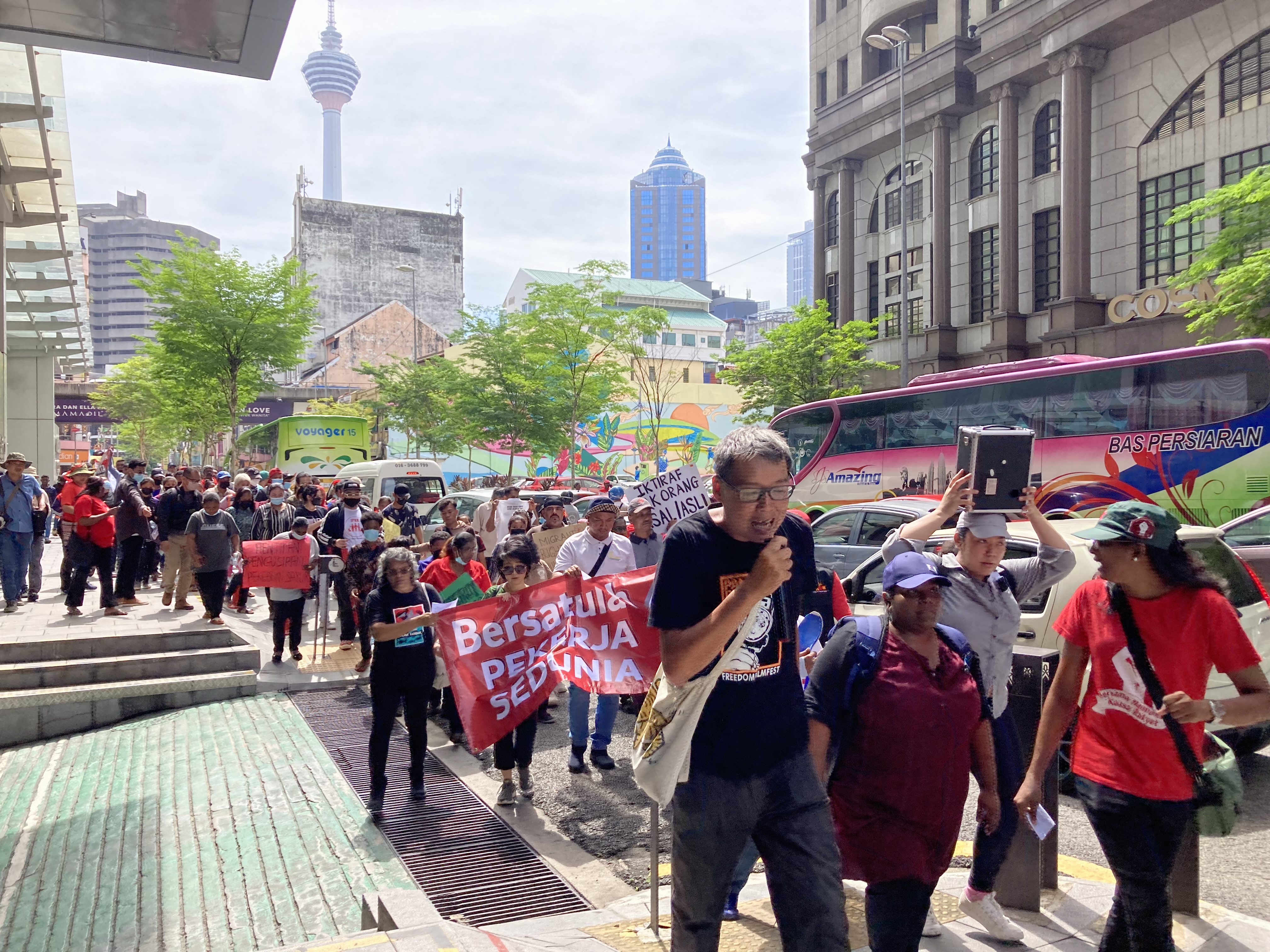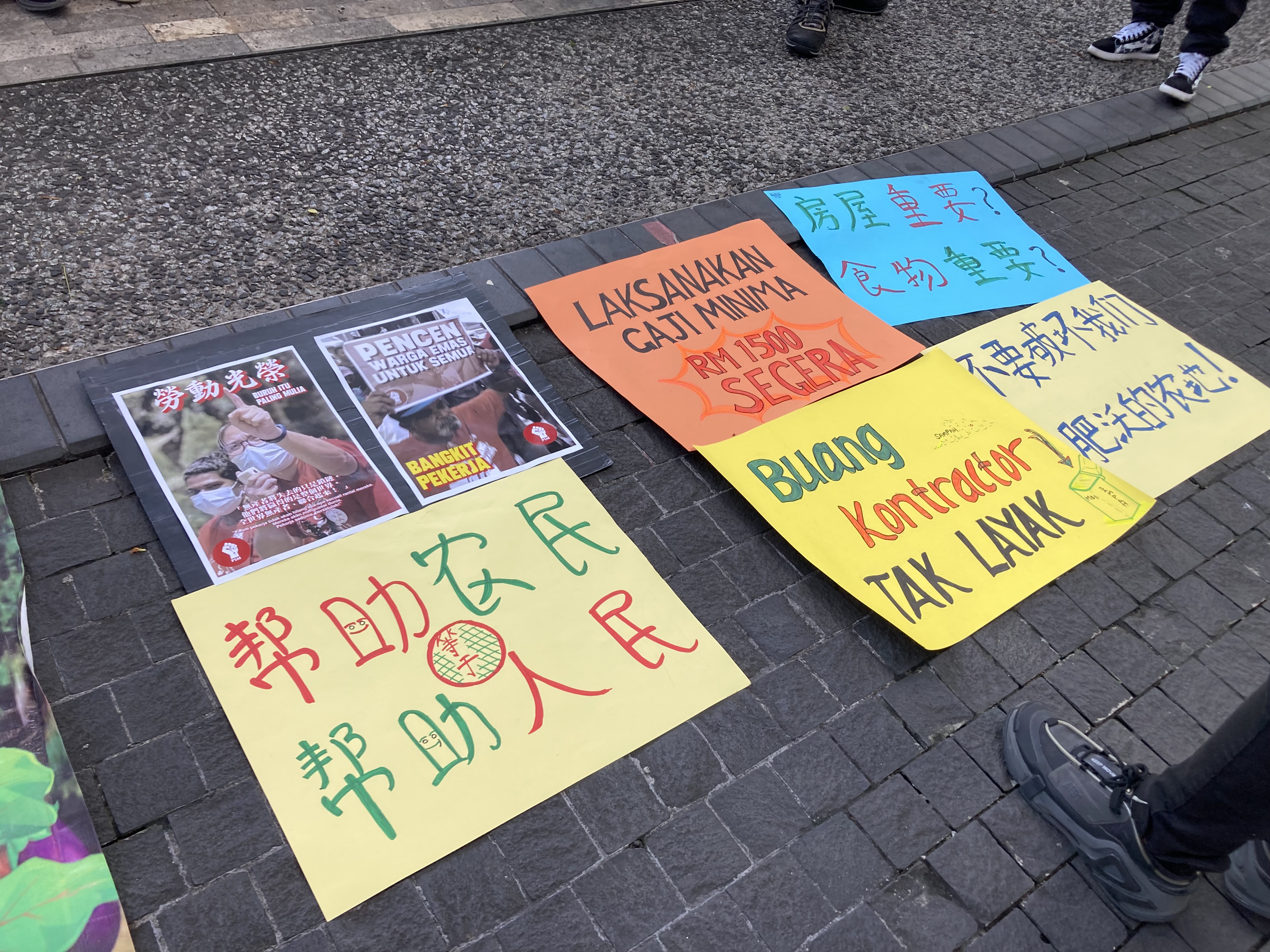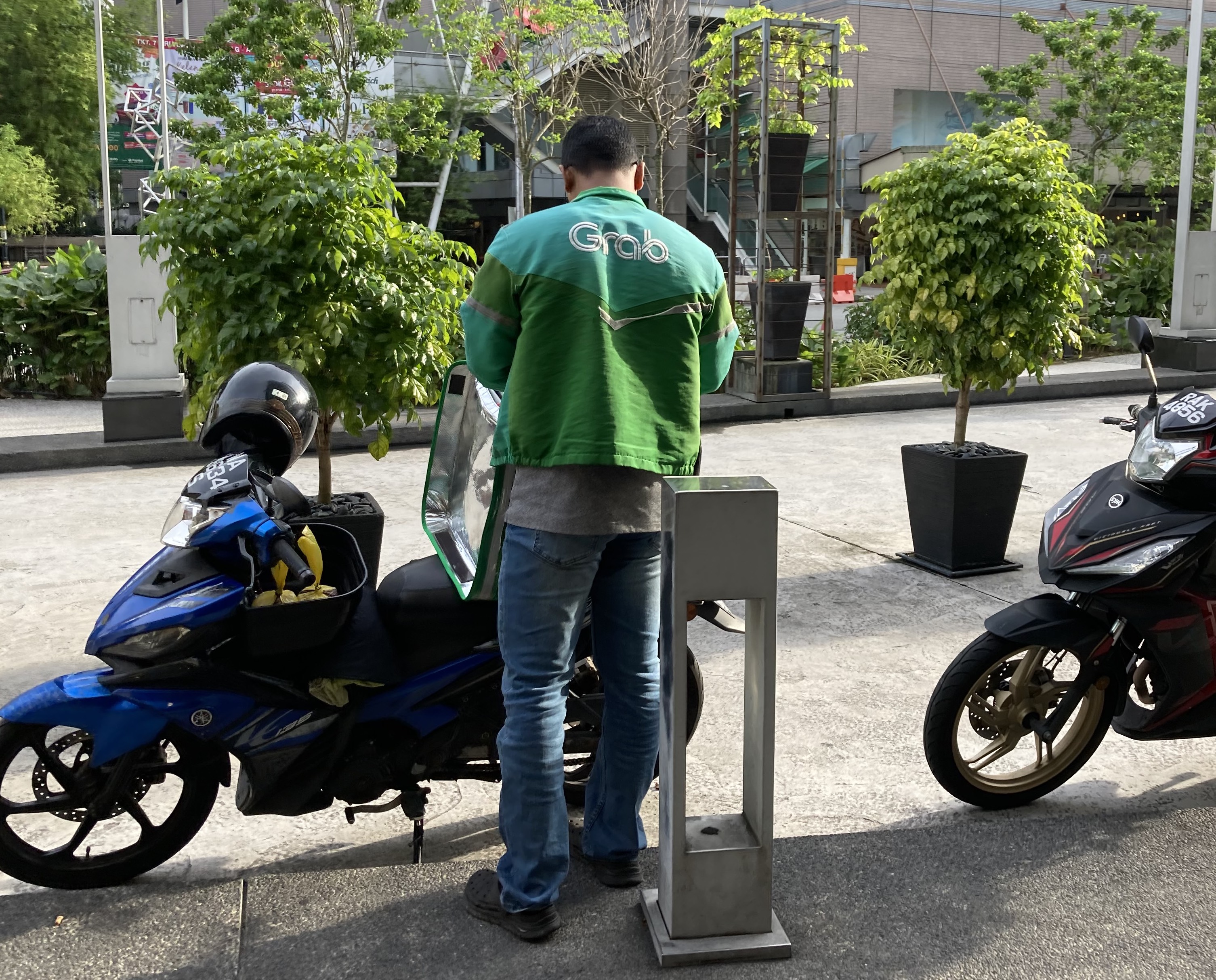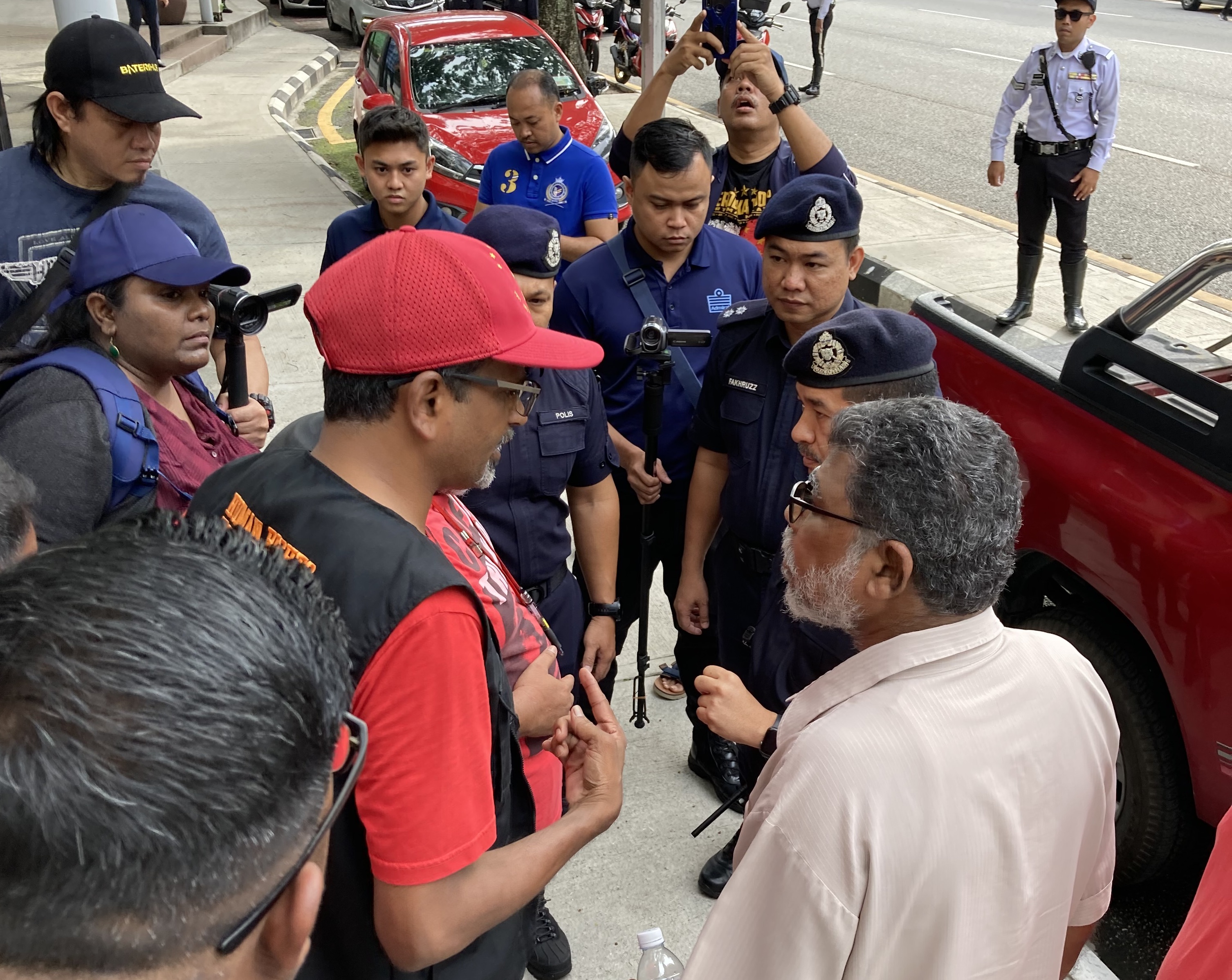On 1 May 2023, over 400 people assembled in the centre of Kuala Lumpur, Malaysia, and marched to advocate for workers’ rights, including enforcing the minimum wage, ending privatisation of government contracts for sanitation and security workers, and protecting the land rights of agricultural workers.

Choo Chon Kai (centre, with microphone) leads a chant at the 2023 May Day march in Kuala Lumpur, Malaysia. Photograph: CLB staff
The rally was organized jointly by several rights groups and political parties around the theme of “dignified salary and food security.” This theme reflects that minimum standards have yet to be achieved for workers in Malaysia.
For example, the minimum monthly wage was recently increased to RM 1,500 (U.S. $336), but full implementation has been delayed until 1 July this year. The minimum wage frequently goes unenforced.
As for food security, Choo Chon Kai, a coordinator with the Socialist Party of Malaysia (PSM), described to CLB how land rights are related to cost-of-living issues in the country:
We are fighting on behalf of farmers. Malaysia is having a food crisis, so when the government kicks out farmers for development projects, they are jeopardising the farmers’ rights and also causing rising food prices for everyone.

Handmade signs advocate in Chinese for the rights of rural workers, reading “Helping farmers equals helping the people” and “Is housing important? Is food important?” and “Don’t destroy our fertile farmland!" Photograph: CLB Staff
Sevan Doraisamy told CLB that Malaysia’s workers’ rights efforts cannot technically be described as a labour movement. Doraisamy is the executive director of Suara Rakyat Malaysia (SUARAM), one of the May Day event organizers and an FIDH member organization. Instead, rights advocates and political parties take the lead on framing general labour demands and voicing them each May Day.
Workers are permitted by law to form unions, but not without restrictions. Some sectors like electronics manufacturing have workplace-level unions, but a national-level union organization is not permitted. This not only impedes progress on factory workers’ rights issues but also leaves these workers unrepresented at the May Day event.
Another worker group noticeably absent from the May Day march is gig workers, for this same reason of lack of formal organization. But as the march progressed through the streets of Kuala Lumpur, CLB staff observed Grab riders and Foodpanda riders showing their support, through shouts and raised fists, as they rode past the march while making deliveries.

A Grab rider in Kuala Lumpur completes an order on the morning of the 2023 May Day march. Photograph: CLB staff
Other sectors, such as sanitation workers and agricultural workers, have broader representation through NGOs, and these workers were better mobilised for the May Day rally. A representative from a contract workers’ NGO, Jaringan Pekerja Kontrak Kerajaan (JPKK), told CLB that private outsourcing of government sanitation and security work implicates the government in the companies’ rights abuse:
That is our ultimate goal: to abolish the privatisation system, but we know it is a very long fight. So for now, we are at least trying to get the government to blacklist the companies that violate the labour laws. Some companies have not even enforced the minimum wage. And anyone who goes and makes a complaint, the labour department notifies the company, so it is not safe for workers to report. They could get fired for daring to make a complaint.
The Malaysian Trade Unions Congress was not involved in organizing the May Day event and did not send representatives. Its webpage of public statements has not been updated since 2018.
The May Day march and rally in Kuala Lumpur has a long history. Since the early 2000s, the rally has been granted approval by the police, who regulate public assemblies in Malaysia. The pandemic disrupted the event for the past three years, and its restart this year was not as smooth as in the past.

Sevan Doraisamy (centre, in red cap) negotiates with police just prior to the start of the 2023 May Day event. Photograph: CLB staff
Rather than simply approve the assembly per usual, this year police asked to meet with organizers and negotiate specific terms and conditions. These included changing the starting and ending location the day before and allowing only one lane of the road to be occupied, and even stipulating that certain political messaging would not be permitted.
As seen from the wide range of topics on participants’ signs and banners, labour issues in Malaysia are closely linked to many social, environmental, and civil rights concerns applicable across the region.
This International Labour Day, CLB stands in solidarity with workers and advocates everywhere seeking stronger labour protections. The pandemic laid bare the inequalities facing society and the need for stronger labour guarantees for workers of all kinds. Minimum standards create a safer, more equitable society for all, but they are only a starting point on the path toward workers organizing and voicing their demands to raise the bar on rights from the bottom up.
Further CLB reading:
